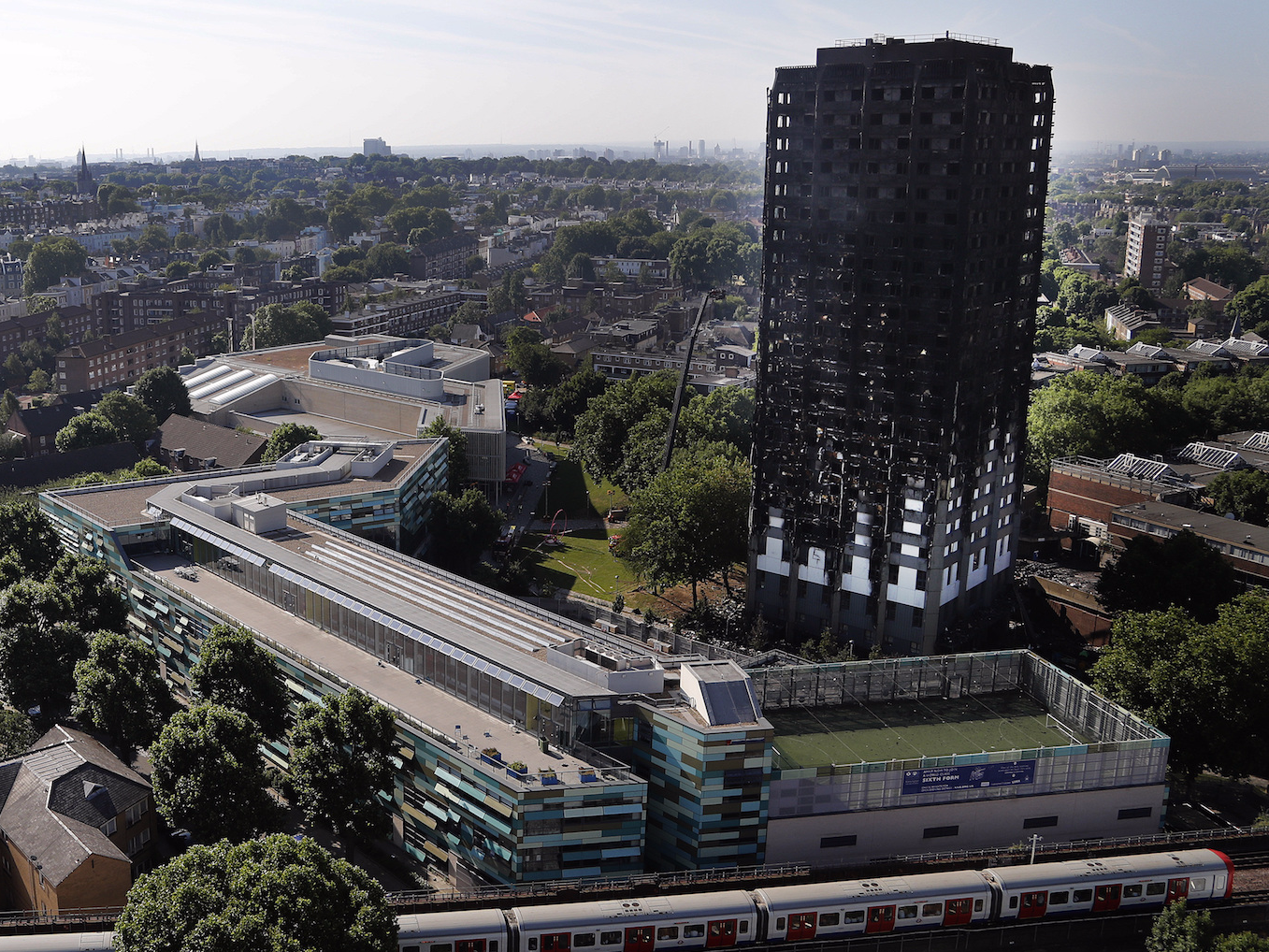- Grenfell Tower’s management shunned safer cladding to save money. Leaked emails show pressure for “good costs.” Downing Street rebuked Kensington and Chelsea council for cancelling public meeting. CEO of Grenfell’s management company stepped down on Friday afternoon.
Officials in charge of the recent refurbishment of Grenfell Tower reportedly chose a less fire-resistant type of cladding to save £300,000 ($380,000).
Leaked internal emails appear to show cost-cutting deliberations made around three years before the west London apartment block caught fire this month, killing at least 80 people.
Correspondence published by The Times and the BBC shows changes in the type of material contractors were told to use on the tower during a major renovation project.
Emails indicate that a plan to use zinc-based cladding on the outside of the building was downgraded in favour of an aluminium version. A screenshot of a costing table published by the BBC suggests that the decision saved £293,368.
Both reports suggested that the zinc version is less combustible than the aluminium panels which were used instead, and "contributed" to the spread of the fire.
The cladding change is listed alongside other amendments suggesting ways to save money for the Kensington and Chelsea Tenant Management Organisation (KCTMO), which ran the building on behalf of the local council.
KCTMO and Kensington and Chelsea council did not immediately respond to Business Insider's request for comment.
The organisation was hit by a further blow on Friday when its chief executive, Robert Black, stepped down from his position to "concentrate on assisting the inquiry".
According to The Times, the changes were prompted by political pressure from local officials to spend less money on social housing.
An email, allegedly from KCTMO, said: "We need good costs for Cllr Feilding-Mellen and the planner tomorrow at 8.45am!" Feilding-Mellen is the member of Kensington and Chelsea council who oversaw the Grenfell refurbishment.

The apparent decision is a further example of options that Grenfell Tower's management could have taken to improve fire safety, but decided not to.
Two days after the fire, as media attention began to focus on safety standards at the building, The Times reported that the entire building could have been fitted with "non-combustible" versions of the aluminium panels for a total of just £5,000 more.
Police opened a criminal investigation in the wake of the fire. They are continuing a painstaking search of the building's burned-out remains. On Wednesday, officers warned that the probe would take months and that they are unlikely to be able to offer a final death toll until 2018.
A public inquiry into the fire will also take place, which will be led by retired appeal court judge Sir Martin Moore-Bick.
The response to the Grenfell Tower disaster has so far done little to allay anger among residents, many of whom believe that the current death toll of 80 is low.
Downing Street slams council over Grenfell Tower meeting
Their outrage increased on Thursday night when the first meeting of Kensington and Chelsea councillors since the fire was abruptly cancelled.
Council leader Nick Paget-Brown tried to hold a meeting of councillors in private, but called it off completely after the High Court ruled that reporters must be allowed to attend and publish what was said.
Kensington and Chelsea was slapped down by Downing Street for turning people away. A spokesman said on Friday that it was "vital" for people to be able to access local democracy and that the meeting should have gone ahead.

